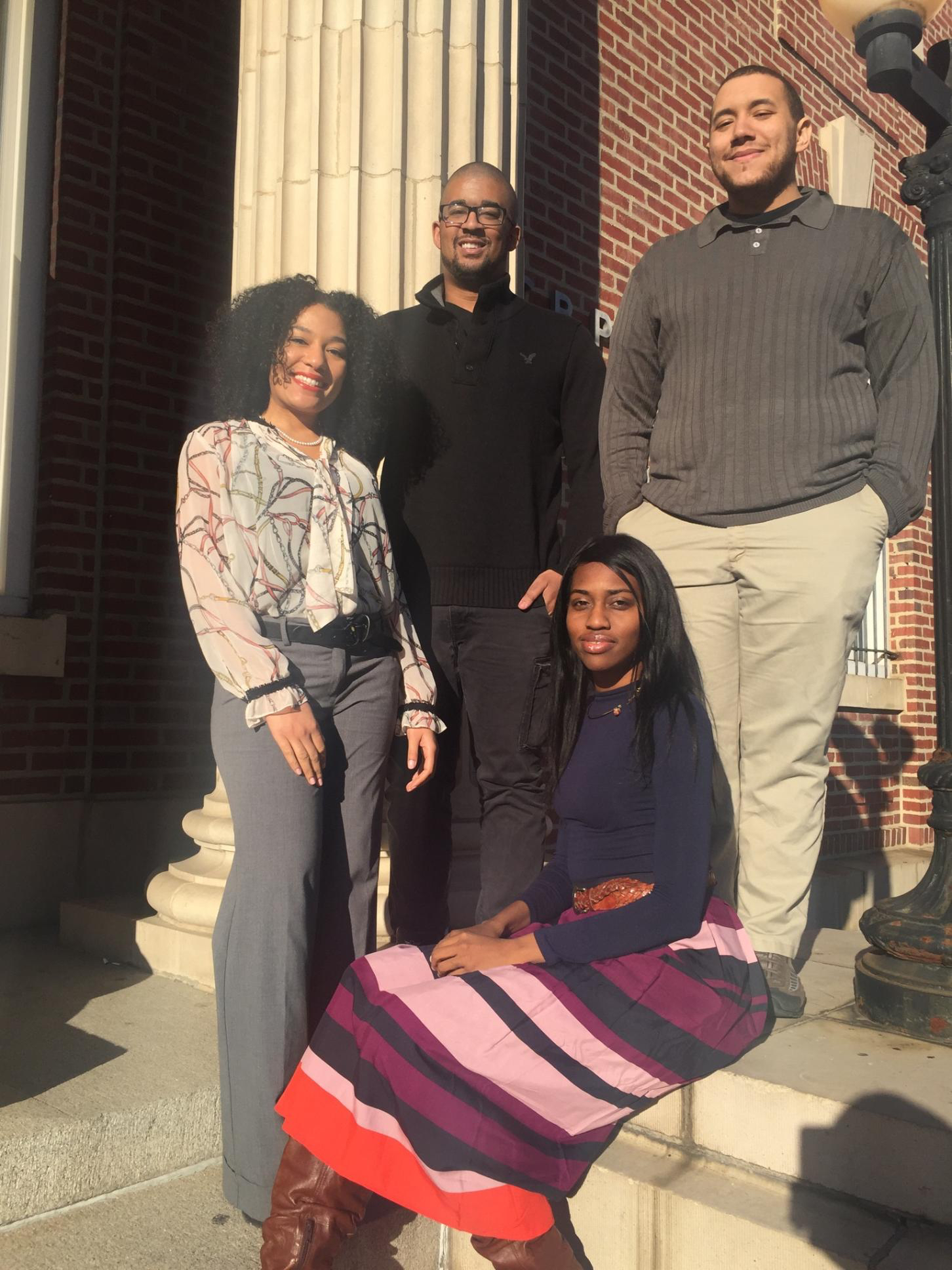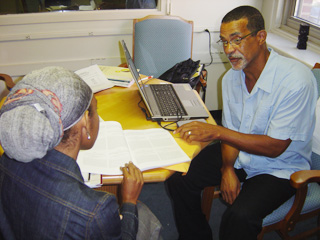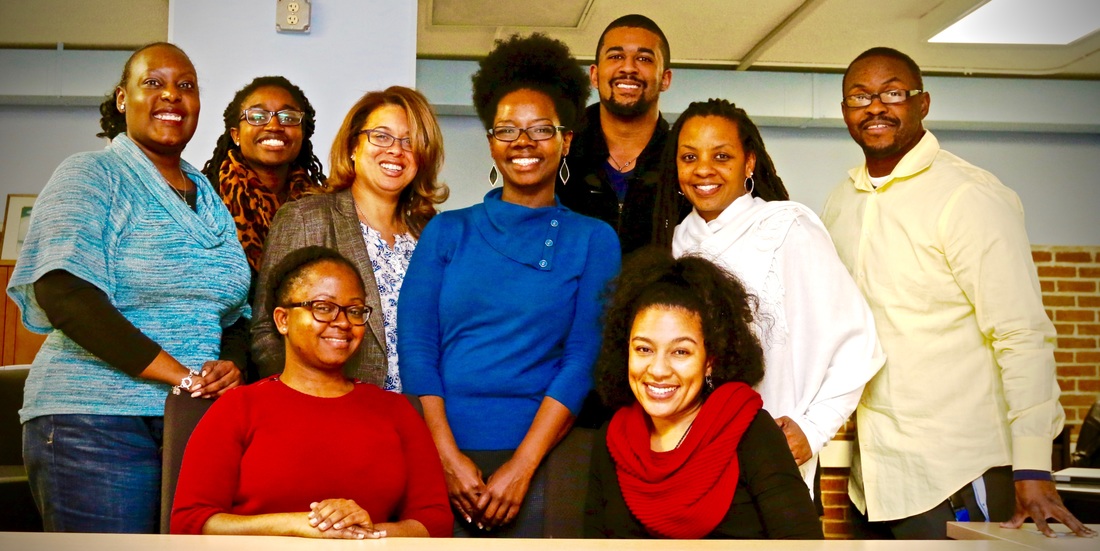Personality
Psychology (Personality Psychology Specialization) |
Psychology PhD (Personality Psychology Specialization)
Overview
The Howard University Personality Psychology Specialization Program combines multiple training and research goals. First, we believe that training students in culturally responsive theoretical development along with research design and analysis fundamentals is the most effective way to influence progress in expanding understanding of human personality within the field of Psychology. Second, in addition, our training focus also encompasses engagement in diverse methodologies and methods such as: (1) narrative autobiographical and life story methods; (2) measurement of electrodermal, electromyographic, and cardiovascular activity; (3) scale, questionnaire, and survey design; (4) translational research and knowledge transfer. Third, the program attempts to foster awareness among students of the use of personality theories, methodologies, and approaches within applied contexts to promote health and wellness, emotional intelligence, professional success, intellectual activism, and both racial and gender inclusion and equity.
Personality Psychology Specialization Program Research and Teaching Topics
- Psychological and Physical Health and Wellness
- The Psychology of Race and Racism
- Humanization and Human Expression
- Psychophysiology
- Narrative Personality Psychology
- Emotional Intelligence
- Identity, Motivation, Personalized Goals,Personality Traits, and Culture
- Methodological Innovation and Development
Prospective Graduate Students
The Personality Psychology Program is not accepting new doctoral students for the 2021-2022 Academic Year.
Graduate students who earn a doctoral degree from the Howard University Personality Psychology Specialization Program are well prepared for various careers within multiple industries including but not limited to the following: University and College Professor, Federal Government and Non-Profit Research Scientist, Corporate Human Resources and Talent Development Manager/Executive, and Community Health and Wellness Professional.
All students in the Personality Psychology Specialization Program are required to have a research mentor starting the first year of graduate study. Thus, prior to applying to the graduate program in Personality Psychology, please contact the faculty member with whom you wish to work to determine if he or she is accepting students in his/her research lab for the subsequent year.
Personality Psychology Specialization Doctoral Students and Research Interests
(Photo includes Jason Jones, Ricco Hill, Chloe Martin, and Jeva St. Fort)
Jason M. Jones, M.S. Psychology, Howard University; B.S. Psychology, Morehouse College. Jason Jones is a doctoral candidate in the Howard University Personality Psychology Program. His research interests focus on human motivation, personalized goals, the narrative processing of the meaning of race, gender psychology, and methodological design. His masters thesis research explored personal strivings and academic satisfaction in African American emerging adult college students. Jason’s dissertation research examines personalized goals and well-being in the lives of professional athletes employing an innovative psychobiographical case study design and multiple methods of inquiry.
Di’eayyah Najae’ Boney, B.A. Psychology and Criminology, University of Miami. Di’eayyah’s current research focuses on the identity development of young African American women. She is looking to examine the role personality plays in identity development; as well as, the effects of identity development on stress via physiological responses to stress induced situations that are central to self identification. Her research will also measure the effects of the intersectionality of race and gender on identity saliency.
Ricco J. Hill, B.S. Psychology, Howard University. Ricco’s research interests primarily revolve around emotion and emotional intelligence, notably the interplay of the psychological and physiological components of emotional responses, individual differences in emotional abilities, and the short-term and long-term effects of different emotional strategies and tendencies on overall well-being.
Chloé Marie Martin, M.S. Psychology, Howard University; Graduate Certificate, College and University Faculty Preparation, Howard University; B.A. Psychology, Florida A & M University. Chloe examines behavioral, psychological, and social factors that influence adjustment to life after cancer including, fear of recurrence, depression, symptom distress, coping, optimism, emotional intelligence, social support, social constraints, symptom distress, and behavioral intentions to engage in yoga. Most of her training in the Howard University Cancer Center has focused on female African American breast cancer survivors. As a Preparing Future Faculty Fellow, Chloe also examines academic achievement and diversity in higher education.
Jeva St. Fort, M.S. Community Psychology Florida A&M University; B.A. Psychology Florida A&M University. Jeva St. Fort is doctoral student in the Howard University Personality Psychology Program. Having a background in African American community related stressors; her research interests focus on effects of stress management practices on academic performance among African American college students. She is presently developing a personality assessment using personality traits to determine optimal career path.
Personality Psychology Specialization Faculty and Research Interests
Camara Jules P. Harrell, Ph.D., Professor and Director of Personality Psychology Specialization and Director of Undergraduate Program (Ph.D., University of Illinois). Research Interests: Individual differences in physiological responses to psychological challenges; stress and coping in people of African descent; behavioral medicine. More on Research Interests
Cynthia E. Winston-Proctor, Ph.D., Professor (Ph.D., University of Michigan; B.S. Howard University). Research Interests: Narrative Personality Psychology Specialization; Organizational design and personal transformation to promote women’s career advancement and healthy living; Informal STEM educational design and computational thinking; Qualitative Inquiry in Psychology. ISRL Lab
Contacts
Program Details
- Related Degrees: Ph.D.
- Program Frequency: Full-Time
- Format: In Person



